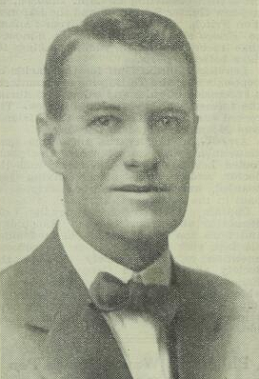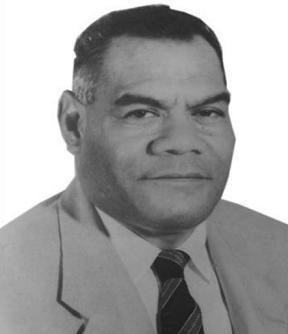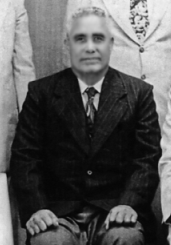Related Research Articles

Politics of Samoa takes place in a framework of a parliamentary representative democratic state whereby the Prime Minister of Samoa is the head of government. Existing alongside the country's Western-styled political system is the fa'amatai chiefly system of socio-political governance and organisation, central to understanding Samoa's political system.
The Mau was a non-violent movement for Samoan independence from colonial rule during the first half of the 20th century. Mau means ‘resolute’ or ‘resolved’ in the sense of ‘opinion’, ‘unwavering’, ‘to be decided’, or ‘testimony’; also denoting ‘firm strength’ in Samoan. The motto for the Mau were the words Samoa mo Samoa. Similarly in Hawaiian Mau means to strive or persevere, and is often linked with Hawaiian poetry relating to independence and sovereignty struggles.

Sir James Allen was a prominent New Zealand politician and diplomat. He held a number of the most important political offices in the country, including Minister of Finance and Minister of Foreign Affairs. He was also New Zealand's Minister of Defence during World War I.
Alfred James Tattersall was a New Zealand photographer, who lived in Samoa for most of his life and contributed a significant collection of images of the Pacific Island country and its peoples during the colonial era.

Tupua Tamasese Lealofi-o-ā'ana III was a paramount chief of Samoa, holder of the Tupua Tamasese dynastic title and became the leader of the country's pro-independence Mau movement from early 1928 until his assassination by New Zealand police in 1929. Inspired by his Christian beliefs, traditional customs and culture of Samoa, Lealofi III became one of the first leaders of the 20th century to employ nonviolent resistance against colonial rule which laid the foundations for Samoa's successful campaign for independence, which it attained in 1962.

Mata'afa Faumuina Fiame Mulinu'u I was a high chief of Samoa and a leader of the country's pro-independence Mau movement during the 1920's and 1930's. He was the holder of high-ranking ali'i chiefly titles: the Tama-a-'aiga Mata'afa, Fiame from Lotofaga and Faumuina from Lepea.
The Samoanische Zeitung, later known as the Samoa Times, was a newspaper in Samoa published in both English and German.

General elections were held in Western Samoa on 23 January 1924.

General elections were held in Western Samoa on 30 November 1926.
Alexander William Johnston was a British-born soldier, businessman and politician. He was a member of the Legislative Council in Western Samoa from 1928 until his death in 1932.

Irving Hetherington Carruthers was a Western Samoan businessman and politician.

Alan Ridge Cobcroft was a Western Samoan planter and politician.

George Egerton Leigh Westbrook was a Western Samoan businessman and politician. He was a member of the Legislative Council from 1924 until 1929.

Alfred George Smyth was a New South Wales-born Western Samoan politician.
Arthur Williams was an Australian-born Western Samoan plumber and politician who served as a member of the Legislative Council between 1924 and 1929.

Afioga Asiata Lagolago was a Western Samoan politician. He served as Minister for Agriculture between 1961 and 1964, and as a member of the Legislative Assembly from 1957 until his death in early 1973.

Fonoti Matautia Ioane (John) Brown was a Western Samoan chief, businessman and politician. He was a member of the Legislative Assembly in two spells between 1948 and 1957, and held the portfolios of Agriculture and Health.

Peter Plowman was an Australia-born businessman and politician in Western Samoa. He served as a member of the Legislative Assembly between 1954 and 1964, and as Member for Transport and Communications from 1956 to 1957.

William Frederick Stowers was a Western Samoan politician. He served as a member of the Legislative Assembly from 1948 to 1951.
Capital punishment is not a legal penalty in Samoa. The death penalty was used in the colonial era, but the practice had ceased by the time of independence in 1962, with death sentences being commuted to life imprisonment, and it was formally abolished in 2004. The last execution was carried out in 1952.
References
- 1 2 3 4 5 Death of Samoan Pioneer Pacific Islands Monthly , August 1934, p19
- 1 2 Samoan affairs: Empty Treasury Auckland Star , 13 June 1934
- ↑ Local and General Samoanische Zeitung , 1 September 1922
- ↑ The Past Year's Record Samoanische Zeitung, 17 January 1920
- ↑ Samoan constitution Dominion, 6 May 1920